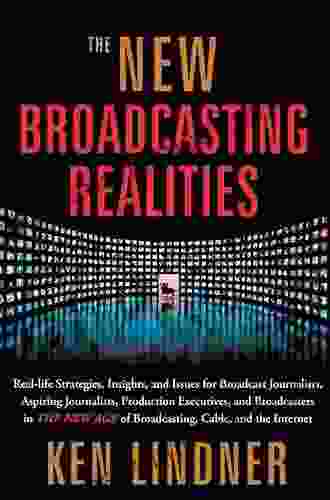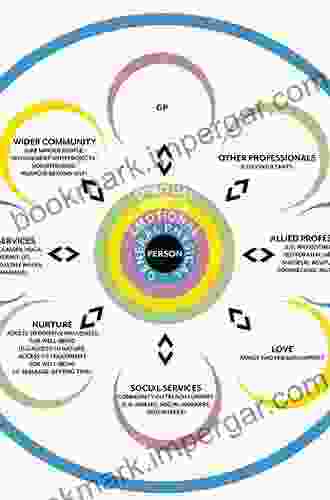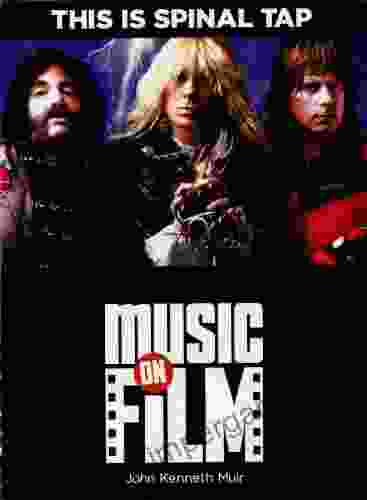An Integrative Psychosocial and Medical Approach to Chronic Pain Management: Advancing Patient Care and Outcomes

Chronic pain affects millions of people worldwide, significantly impacting their quality of life and overall well-being. Traditional approaches to pain management have often focused solely on medical interventions, such as medications and surgical procedures. However, it is now widely recognized that psychosocial factors play a crucial role in the experience and management of chronic pain.
4.3 out of 5
| Language | : | English |
| File size | : | 3073 KB |
| Text-to-Speech | : | Enabled |
| Screen Reader | : | Supported |
| Enhanced typesetting | : | Enabled |
| Word Wise | : | Enabled |
| Print length | : | 254 pages |
An integrative approach combines both psychosocial and medical interventions to address the complex and multifaceted nature of chronic pain. This comprehensive guide provides healthcare professionals with a thorough understanding of the biopsychosocial model of pain and its implications for patient care.
Understanding the Biopsychosocial Model of Pain
The biopsychosocial model of pain recognizes that pain is not merely a physical sensation but also a subjective experience influenced by biological, psychological, and social factors. This model emphasizes the interconnectedness of these factors and their impact on the perception, interpretation, and management of pain.
Biological factors include the physiological processes associated with pain, such as tissue damage, inflammation, and nerve function. Psychological factors encompass thoughts, emotions, and beliefs that can modulate pain perception, such as anxiety, depression, and fear-avoidance behavior. Social factors include environmental, cultural, and interpersonal influences that can shape the pain experience, such as social support, occupational demands, and access to healthcare.
Psychosocial Interventions for Chronic Pain
Psychosocial interventions are non-invasive therapies that aim to address the psychological and social dimensions of chronic pain. These interventions can help patients develop coping mechanisms, improve self-efficacy, and reduce the impact of pain on their daily lives.
- Cognitive-Behavioral Therapy (CBT) focuses on changing negative thought patterns and behaviors that contribute to pain perception and disability.
- Mindfulness-Based Stress Reduction (MBSR) teaches patients to be present in the moment and cultivate non-judgmental awareness, reducing stress and improving pain tolerance.
- Acceptance and Commitment Therapy (ACT) supports patients in accepting the reality of pain while pursuing meaningful life goals, promoting psychological flexibility and well-being.
- Interpersonal Therapy (IPT) addresses the role of relationships and social support in pain management, exploring ways to improve communication and strengthen coping resources.
- Motivational Interviewing (MI) helps patients explore their ambivalence about change and develop intrinsic motivation for adopting healthier behaviors, including self-care and pain management strategies.
Medical Interventions for Chronic Pain
Medical interventions play a vital role in managing the physical aspects of chronic pain. These interventions include:
- Medication Therapy: Medications such as analgesics, anti-inflammatories, and antidepressants can help reduce pain intensity and improve function.
- Physical Therapy: Exercises and modalities aimed at restoring range of motion, improving posture, and strengthening muscles can alleviate pain and promote physical well-being.
- Invasive Procedures: In certain cases, surgical interventions, nerve blocks, or spinal cord stimulation may be necessary to address underlying medical conditions or provide long-term pain relief.
- Complementary Therapies: Acupuncture, massage therapy, or meditation can provide additional pain relief and promote relaxation.
Integrating Psychosocial and Medical Interventions
The integration of psychosocial and medical interventions is essential for optimizing patient outcomes in chronic pain management. This approach tailors interventions to the individual needs of each patient, considering their unique biopsychosocial profile.
- Psychosocial interventions can enhance the efficacy of medical treatments by reducing anxiety and depression, improving adherence to medication, and promoting self-management skills.
- Medical interventions can provide a stable foundation for psychosocial interventions, addressing the underlying physical pain and creating a more conducive environment for psychological growth.
- Interdisciplinary collaboration between healthcare professionals, such as physicians, psychologists, and physical therapists, is crucial for providing comprehensive and coordinated care.
Patient-Centered Care in Chronic Pain Management
Patient-centered care is a cornerstone of an integrative approach to chronic pain management. This approach involves actively engaging patients in their own care, empowering them to make informed decisions and take an active role in their treatment plan.
- Shared decision-making ensures that patients understand their treatment options and participate in decision-making, increasing adherence and satisfaction.
- Educating patients about the biopsychosocial model of pain helps them develop a better understanding of their condition and its management.
- Emphasizing self-management empowers patients to take control of their pain and develop coping strategies that fit their lifestyle and values.
- Promoting self-efficacy builds patients' confidence in their ability to manage pain and improve their quality of life.
An integrative psychosocial and medical approach to chronic pain management represents a paradigm shift in healthcare. It recognizes that pain is a complex and multifaceted experience that requires a comprehensive approach to address the interconnected biological, psychological, and social factors involved.
By integrating psychosocial interventions with medical treatments, healthcare professionals can provide holistic and effective care that empowers patients to manage their pain effectively, improve their well-being, and live fulfilling lives. This guide serves as an invaluable resource for healthcare professionals seeking to advance their knowledge and skills in chronic pain management, ultimately enhancing patient care and outcomes.
4.3 out of 5
| Language | : | English |
| File size | : | 3073 KB |
| Text-to-Speech | : | Enabled |
| Screen Reader | : | Supported |
| Enhanced typesetting | : | Enabled |
| Word Wise | : | Enabled |
| Print length | : | 254 pages |
Do you want to contribute by writing guest posts on this blog?
Please contact us and send us a resume of previous articles that you have written.
 Book
Book Novel
Novel Page
Page Chapter
Chapter Text
Text Story
Story Genre
Genre Reader
Reader Library
Library Paperback
Paperback E-book
E-book Magazine
Magazine Newspaper
Newspaper Paragraph
Paragraph Sentence
Sentence Bookmark
Bookmark Shelf
Shelf Glossary
Glossary Bibliography
Bibliography Foreword
Foreword Preface
Preface Synopsis
Synopsis Annotation
Annotation Footnote
Footnote Manuscript
Manuscript Scroll
Scroll Codex
Codex Tome
Tome Bestseller
Bestseller Classics
Classics Library card
Library card Narrative
Narrative Biography
Biography Autobiography
Autobiography Memoir
Memoir Reference
Reference Encyclopedia
Encyclopedia Izaskun Chinchilla
Izaskun Chinchilla I A Greer
I A Greer Jonathan Greenblatt
Jonathan Greenblatt L U Ann
L U Ann K F Long
K F Long Ian St James Roberts
Ian St James Roberts Jackie Clay Atkinson
Jackie Clay Atkinson Judy More
Judy More Ike Ijeh
Ike Ijeh Isabella Ginor
Isabella Ginor Sarah Chaney
Sarah Chaney Jake Brown
Jake Brown Jack Fairweather
Jack Fairweather Jaclyn London
Jaclyn London Jackie Phamotse
Jackie Phamotse J R Briamonte
J R Briamonte John Kenneth Muir
John Kenneth Muir Hunter Muller
Hunter Muller Ivica Milaric
Ivica Milaric Indira Ghose
Indira Ghose
Light bulbAdvertise smarter! Our strategic ad space ensures maximum exposure. Reserve your spot today!

 Stanley BellPhysical And Statistical Models For Steam Generator Clogging Diagnosis: Your...
Stanley BellPhysical And Statistical Models For Steam Generator Clogging Diagnosis: Your...
 Miguel NelsonUnveiling the Federal Arbitration Act: A Comprehensive Annotated Legislative...
Miguel NelsonUnveiling the Federal Arbitration Act: A Comprehensive Annotated Legislative... Marc FosterFollow ·17.4k
Marc FosterFollow ·17.4k Dawson ReedFollow ·17.4k
Dawson ReedFollow ·17.4k Al FosterFollow ·7.8k
Al FosterFollow ·7.8k Clarence BrooksFollow ·17.5k
Clarence BrooksFollow ·17.5k Edwin BlairFollow ·8.5k
Edwin BlairFollow ·8.5k Branson CarterFollow ·8.1k
Branson CarterFollow ·8.1k Winston HayesFollow ·15.8k
Winston HayesFollow ·15.8k Pete BlairFollow ·18.1k
Pete BlairFollow ·18.1k

 Mike Hayes
Mike HayesUnlock Your Nonprofit Potential: A Comprehensive Guide to...
: Embarking on the Path to Impactful...

 Cody Russell
Cody RussellUnlock the Secrets of Captivating Radio Programming:...
In the fiercely competitive world of...

 Aron Cox
Aron CoxUnveiling the Enchanting World of Beth Inspired Eye...
A Realm of Imagination and Wonder Embark on...

 Felix Carter
Felix CarterUnlock the Secrets of Legal Publishing with West Hartford...
West Hartford Legal Publishing, the renowned...

 Henry Hayes
Henry HayesUnveiling the Secrets of the Panama Papers: Exposing...
The Panama Papers is a groundbreaking...
4.3 out of 5
| Language | : | English |
| File size | : | 3073 KB |
| Text-to-Speech | : | Enabled |
| Screen Reader | : | Supported |
| Enhanced typesetting | : | Enabled |
| Word Wise | : | Enabled |
| Print length | : | 254 pages |










